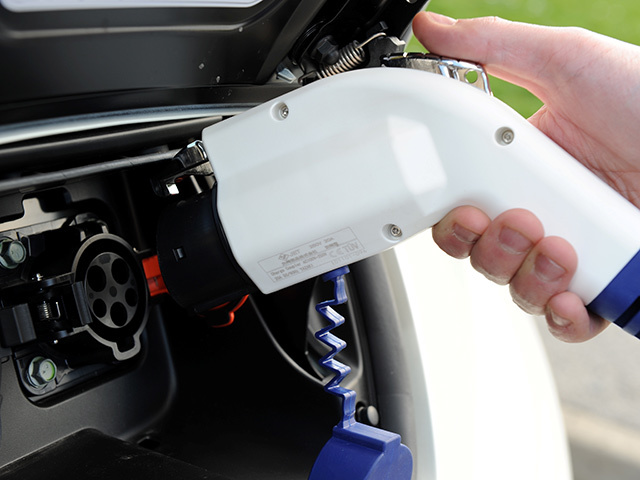
There could be as many as nine million electric vehicles on UK roads by 2030, pushing up peak demand for power, National Grid has said.
In its annual report setting out “future energy scenarios” for how the UK could be using energy in the future and where it could come from, National Grid says electricity demand is set to rise to power electric vehicles and later to provide heating.
By 2050 electric vehicles could make up more than 90% of all car sales, creating an additional peak demand of up to 18 gigawatts (GW) – equivalent to more than five Hinkley Point C nuclear plants, or 30% above current peak demand.
This high demand would be seen if consumers charge their vehicles at their own convenience during peak hours, ignoring electricity tariffs which are cheaper to use during off-peak times.
But with better use of smart technology, engaged consumers and the rise of shared autonomous vehicles which charge off-peak in central locations, demand may only rise by 6GW by 2050 even with more electric cars on the road, the report said.
Technology which could affect how the grid needs to be managed includes the development of super rapid charging allowing vehicles to travel long distances on a five minute charge, and the potential to run power back from vehicles to the grid.
Demand could also be pushed up as the race to cut carbon emissions from heating homes speeds up, with more use of technology such as heat pumps which require electricity to heat homes.
The Future Energy Scenarios report also said the UK would see more renewables and low carbon power in the next 30 years, while there would also be more distributed or small scale generation on the system.
There is already 34GW of renewables, more than a third of total installed capacity, and 26GW of distributed generation, some 27% of the total.
Marcus Stewart, head of energy insights at National Grid, said the scenarios were not predictions but aimed at sparking debate and decisions on the future.
“The energy landscape is changing rapidly and becoming more diverse and complex. An energy system with high levels of distributed and renewable generation is already a reality.
“Electric vehicles are one of many new technologies that are rapidly transforming the energy sector; technical progress and cost reductions in storage and solar panels have driven major change in a short space of time.
“This new era of network operation is exciting and manageable, but it’s important there is investment in smart technologies and electricity infrastructure, and a co-ordinated approach across the whole electricity system”.
Energy Minister Richard Harrington said: “The Government is committed to ensuring homes and business have secure, affordable and clean energy now and in the future.
“It’s right that National Grid provides a frank assessment of the opportunities and challenges that lay ahead with record numbers of electric vehicles on our roads, continuing investment in renewables and innovative new technologies coming onto the market.”
Recommended for you
